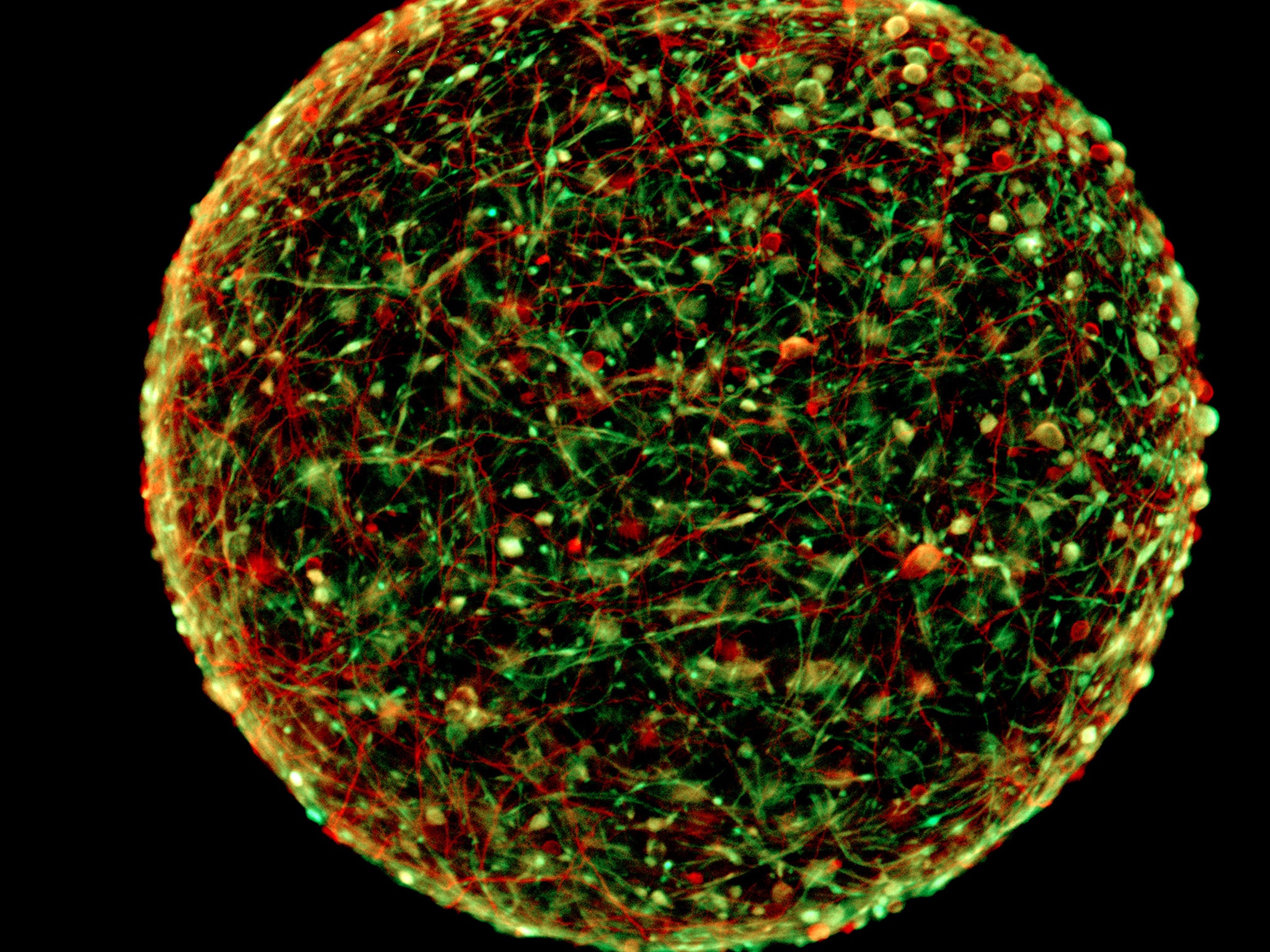Test tube 'mini brains' could replace vivisection for drug development
Scientists have created miniature brains containing many of the specialised cells of the adult human brain

Scientists have created “mini brains” in a test tube for studying neurological diseases and developing new drugs without the need to use laboratory animals in research.
The miniature brains are the size of a pin head but contain many of the specialised cells of the adult human brain. They can carry some of the functions of the brain and are equivalent in development to the immature brain of a two-month-old human foetus, scientists told the American Association for the Advancement of Science.
The researchers synthesised the “brain in a dish” from adult skin cells that were genetically engineered to revert to their embryonic state. These stem cells were then coaxed into becoming a three-dimensional ball of nerve cells which behaved in a similar way to human brain tissue.
It is not the first time that scientists have created mini brains in a dish, but this is the most developed human brain made by a standardised manufacturing process, which is critical for their use in drug development, the scientists said. “We believe that the future of brain research will include less reliance on animals, more reliance on human, cell-based models” said Professor Thomas Hartung of Johns Hopkins University in Baltimore.
“While rodent models have been useful, we are not 150-pound rats. And even though we are not balls of cells either, you can often get much better information from those balls of cells than from rodents,” Professor Hartung said.
Join our commenting forum
Join thought-provoking conversations, follow other Independent readers and see their replies
Comments